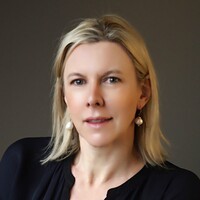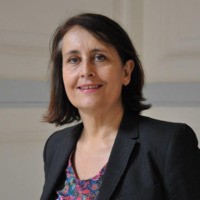Announcing Alliance Visiting Professors for the 2022-23 Academic Year
Alliance Program is proud to name four Visiting Professors for the 2022-2023 academic year.
These faculty members will spend one semester or a few weeks as a Visiting Professor at the partner institution, teaching a course and giving public lectures. This gives them the opportunity to strengthen the link between the schools and to establish long-term contacts for collaboration on future projects.
Visiting Professors 2022-23 Academic Year:

Qiang Du is the Fu Foundation Professor of Applied Mathematics at the Department of Applied Physics and Applied Mathematics (APAM), Fu Foundation School of Engineering and Applied Science (SEAS), Columbia University. He is also an affiliated with the Data Science Institute (DSI). He chaired the Applied Mathematics Program Committee from 2014-2020 and served in DSI as a co-Chair of the Center for Foundations of Data Science from 2017-2019. Currently he also serves as a co-Chair of the Center for Computing Systems for Data-Driven Science.
Florence Haegel is Professor of Political Science at Sciences Po. Former Head of the Department of Political Science, she has been the head of the Centre for European Studies and Comparative Politics since January 2017 and is member of the MaxPo Joint Council since September 2019.
Her research focuses on political parties, politicisation, political socialisation and participation. Her work on political parties deals more specifically with the transformation of the French right (Haegel, Les droites en fusion, 2012).She recently published Back to Basics. Revenir aux rétributions professionnelles du militantisme pour comprendre les partis contemporains with Carole Bachelot.
David Stark is Arthur Lehman Professor of Sociology at Columbia University where he directs the Center on Organizational Innovation. He is also Professor of Social Science at the University of Warwick. His is also Stark uses a variety of methods to study problems of valuation, innovation, and observation.
Stark is currently directing a major research project on Diversity and Performance: Networks of Cognition in Markets and Teams supported by a five-year Advanced career Award from the European Research Council. The project studies the network properties of cognition as organizations face three challenges of detecting error, allocating attention, and organizing innovation. As part of this project, he recently edited The Performace Complex: Valuations and Competitions in Social Life (Oxford University Press, 2020 in press). With Noortje Marres he co-edited Put to the Test: Critical Evaluations of Testing, a Special Issue for the British Journal of Sociology, 2020, forthcoming).
Maria Stavrinaki has worked on historical avant-gardes, focusing on the tensions inherent in their total vocation, their utopian project and their messianism. She is particularly interested in questions of time (revolution, apocalypse, primitivism, prehistory) and history in modernity, working at the crossroads of artistic practices and discourses, the construction of human sciences and political questions. After having studied the modern invention of prehistory, as a question crossing the 19th and the 20th century, she is interested in the reflexivity of the notion of "stupor" as a method and object of research. Two different historical projects intersect here: the atomic age and the historicity of the 1950s (posthistory and eternal present). Her current research also focuses on the mimicry aroused by Malraux's "Imaginary Museum" among artists since the early 1950s.
Michalis Vazirgiannis is a Professor at LIX, Ecole Polytechnique in France and leads the Data Science and Mining group (DaSciM).
He holds a degree in Physics and a PhD in Informatics from Athens University(Greece) and a Master degree in AI from Heriot Watt University,Edinburgh (UK). He has conducted research in Frauhofer, Max Planck MPI (Germany), in INRIA/FUTURS (Paris). He has been teaching in AUEB (Greece), Ecole Polytechnique, Telecom-Paristech, ENS (France), Tsinghua, Jiaotong Shanghai (China) and in Deusto University (Spain). His current research interests are on machine/deep learning and combinatorial methods for Graph analysis (including community detection, graph clustering, node embeddings and influence maximization), Text mining (including Graph of Words, word embeddings with applications to web advertising and marketing, event detection and summarization). He has active cooperation with industrial partners in the area of analytics and machine learning for large scale data repositories in different application domains (including recommendations, meeting summarizatiom, influence metrics for scientific and social networks, predictive maintenance and others). He has supervised fifteen completed PhD theses. He has published three books and more than a 160 papers in international refereed journals and conferences. He has organized large scale conferences in the area of Data Mining and Machine Learning (such as ECML/PKDD) while he participates in the senior PCs of AI and ML conferences – such as AAAI and IJCAI, He has received the ERCIM and the Marie Curie EU fellowships, the Tencent “Rhino-Bird International Academic Expert Award” in 2017 and since 2015 he leads the AXA Data Science chair.

Caroline Weber (Barnard) is a Professor of French specialized in the literature and history of the 17th- and 18th-century royal court, the Enlightenment, and the French Revolution. At Columbia, she has offered seminars on Rousseau, modern literary theory, May 1968, and Images of the French Revolution, team-taught with Professor Elisabeth Ladenson. A graduate of Harvard (A.B., summa cum laude) and Yale (M.A., M.Phil., Ph.D.), she was a junior faculty member at the University of Pennsylvania before coming to Barnard and Columbia in 2005; she has also been a visiting professor at Princeton. Focused on the intersections between literary, political, and visual culture (including fashion), she has contributed articles to such scholarly journals as PMLA, Philosophy and Literature, Eighteenth-Century Culture, and Nineteenth-Century French Studies, and to such mainstream publications as the New York Times, the London Review of Books, the Wall Street Journal, the Washington Post, the Financial Times, W magazine, Town & Country, and Vogue.




